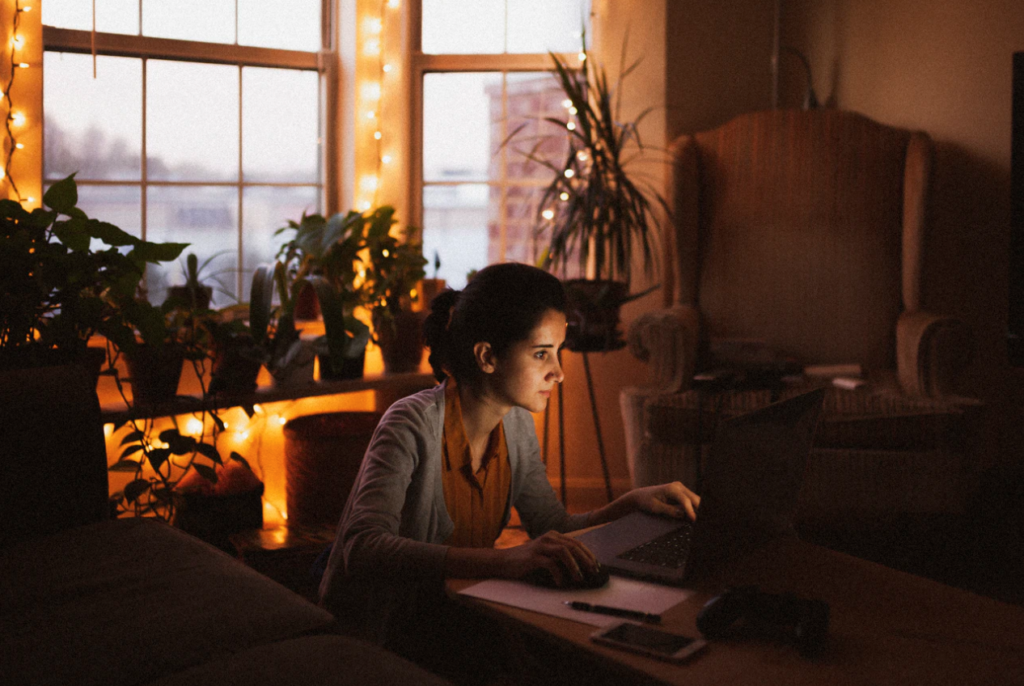
How can screen time influence student wellness?
The overload of information, social media bombardment, and the ongoing cycles of negativity in the news are instantly accessible on computers and phones. Students bring their laptops to record notes during lectures (or browse Facebook) with their phones within reach. Some students cross a busy intersection on campus without looking up from their phones. Staring at a screen is a daily ritual, whether it’s part of work, school, or leisure. While these devices can be very useful in helping students stay connected, it can be a learning tool too. There are benefits to reducing the amount of screen time we allow ourselves.
Technology Dependence
The first thing most people do in the morning is check their phone. The thirst for stimulation creates stress, which often isn’t discussed. Many students feel that they cannot simply quit using their phones.
“As much as I want to sign off sometimes, I can’t resist checking my phone. I use it for everything – my e-mails, messages, reading, browsing. So it is difficult for me to even put it away for just an hour or so,” reports a psychology student at the University of Toronto.
The desire for constant stimulation (on social media especially) creates collective anxiety. To an extent, each individual student has experienced some form of anxiety that was directly influenced by feeling pressure to stay connected on social media. Advertisements, news cycles, and unsolicited material can subconsciously bombard our minds and create stress. There are unhealthy patterns at play, and although we may acknowledge this on a surface level, the implications are much more complex.
Screen Time’s Physical Tolls
For students at the University of Toronto, using a laptop is inevitable. You have to use a computer for projects, assignments, and studying. Unfortunately, mental and physical health deteriorates when you spend a large amount of your day staring at a screen. Students have reported feeling mentally and physically exhausted after having to type and research extensive assignments, all of which require ongoing screen time. This, in combination with sitting for hours, can be disastrous for one’s physical and mental health. Problems that may emerge include:
- posture issues
- pain
- ongoing fatigue
- a decline in mental health
Another problem is the way screen time affects face-to-face socializing. It is difficult to feel energized when you’re bombarded with screens. Additionally, this can take a toll on your personal motivation. But there are steps that students can take to minimize the effects of technology on their health and wellness.
What Can You Do?
The University of Toronto offers workshops and programs that can reduce student stress and anxiety while increasing productivity and motivation. Many of these activities encourage time away from phone usage, so students can enjoy authentic, face-to-face connections and create good memories. There are also drop-in classes for crafts, group fitness sessions, and individualized activities.
These useful plans can help reduce screen time and improve your health and wellness:
- Take a five-minute walk without your phone. If the weather is bad, just walk indoors. If the weather is good, go out and get some sun. You will feel ten times better.
- Are you having difficulty setting down your phone? Do the following. Turn on airplane mode. Place your phone in another room. Now, use your imagination and create something. It doesn’t matter what program you’re studying, everyone can find joy in using their creativity!
- If you have any of the following problems: a lack of sleep, snacking, never drinking water, high intake of carbs and sugar, zero exercise, being friends with people who are bad for you, never reading a book, and, most importantly, if you have more screen time than time in the sun, you need to fix all of this immediately. Instead: get 8 hours of sleep at night, drink water daily, stop snacking on sugar and carbs, make positive connections with good people, read, exercise frequently, and turn off that phone!
Remember that taking breaks from your phone is a good thing. Transform your habits to become happier, healthier, and more productive. This will improve your life in all facets of academia and beyond! You can do this!
For information on how to improve your health, check out How To Reach Your Fitness Goals at The University of Toronto.